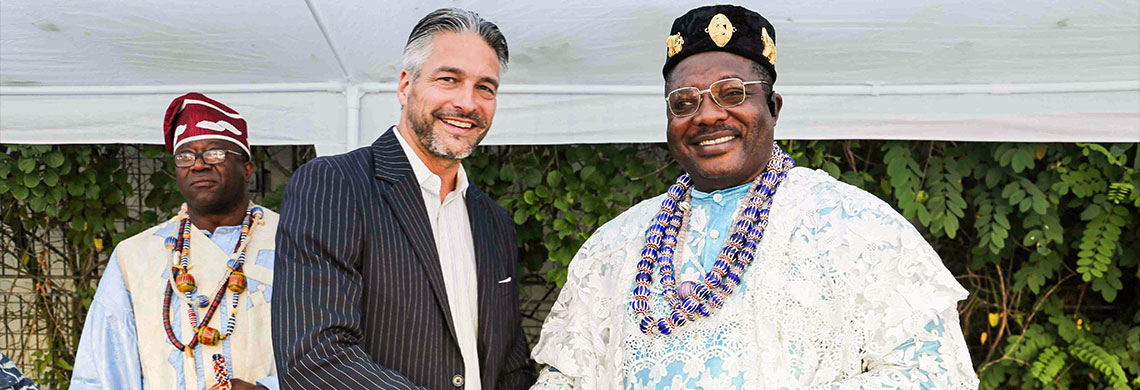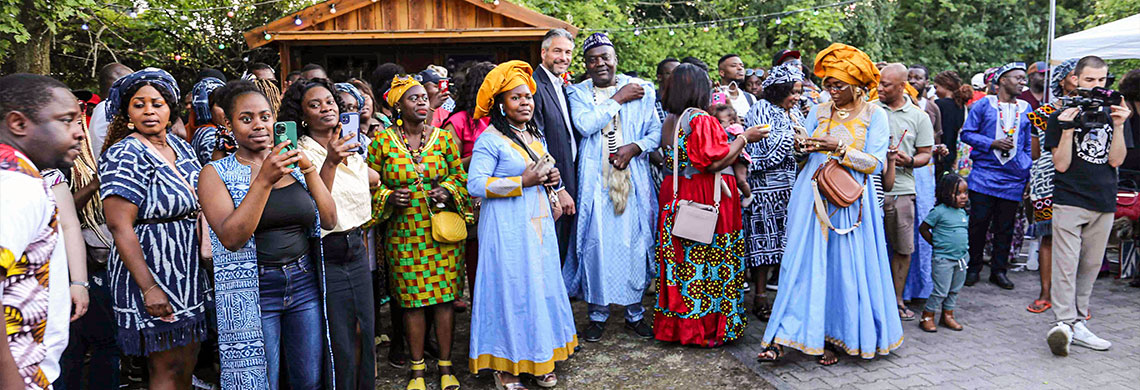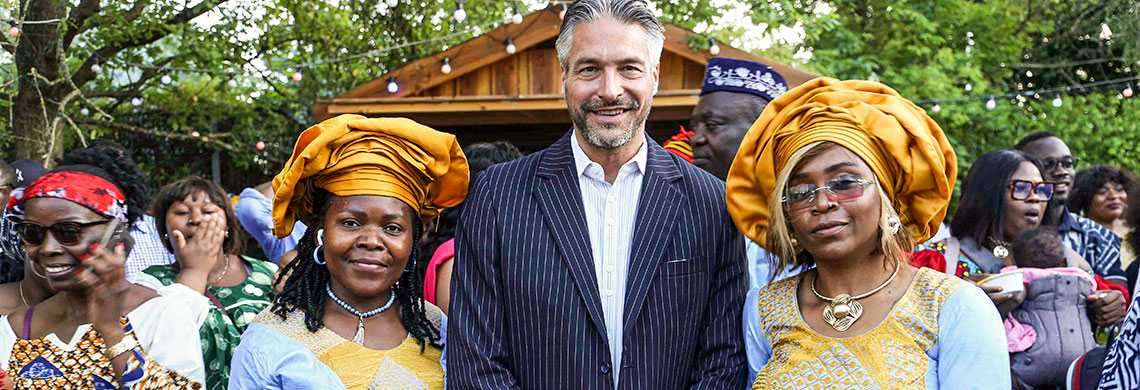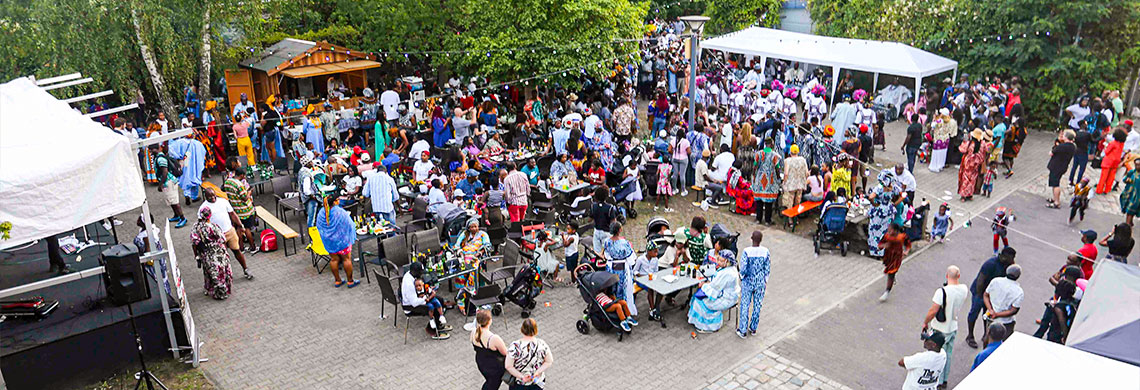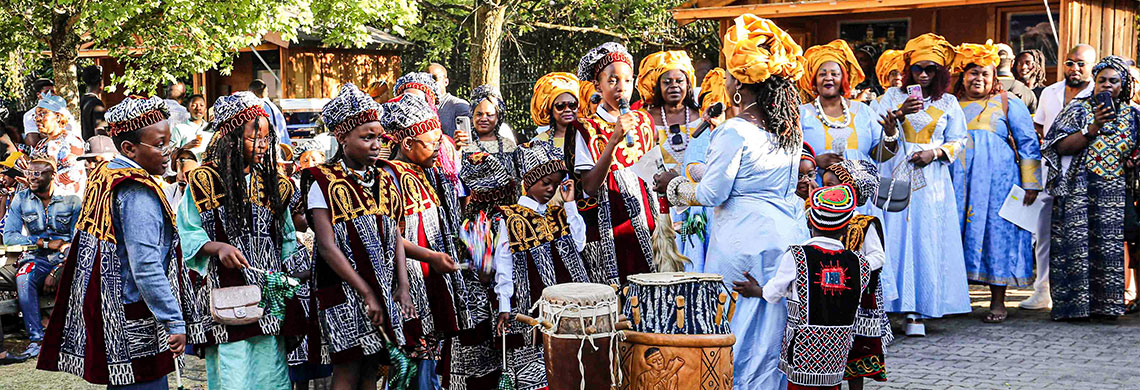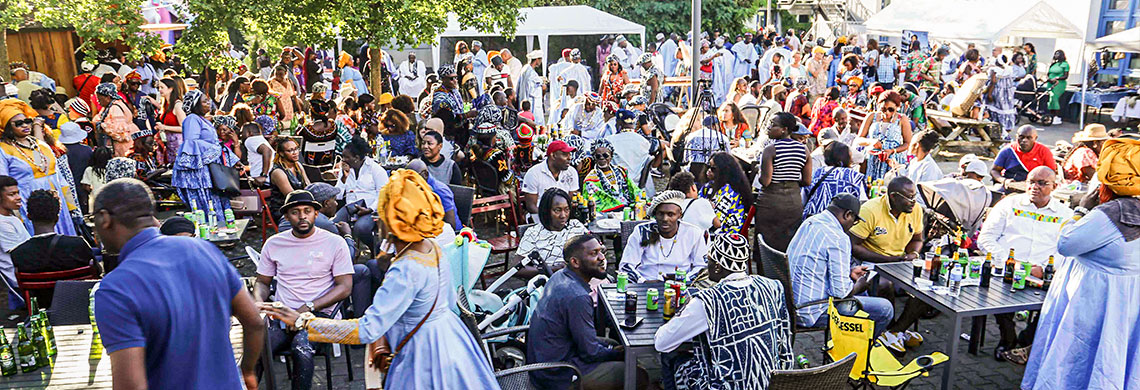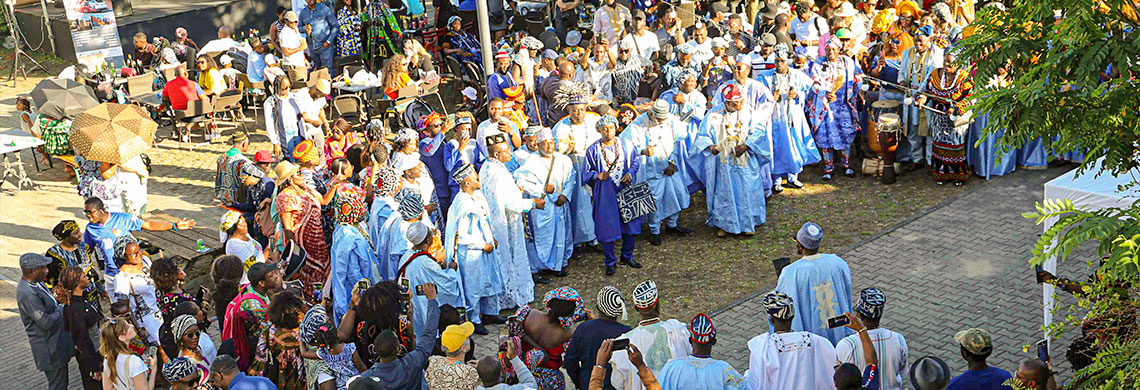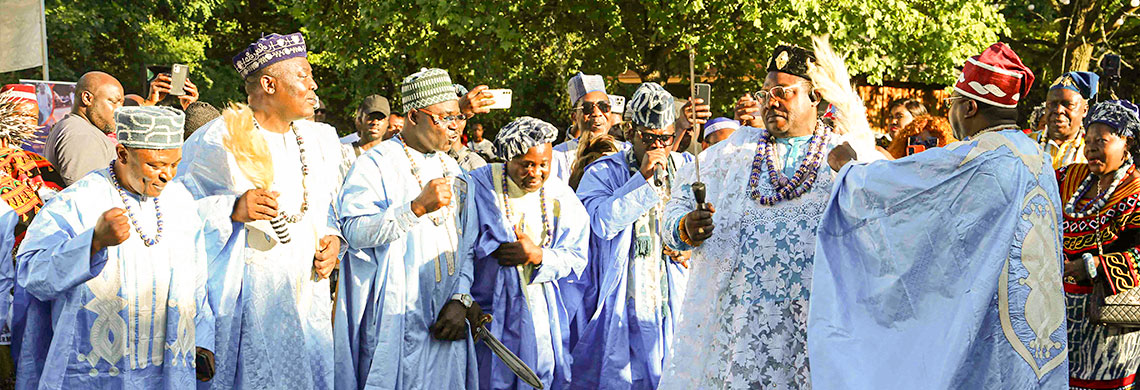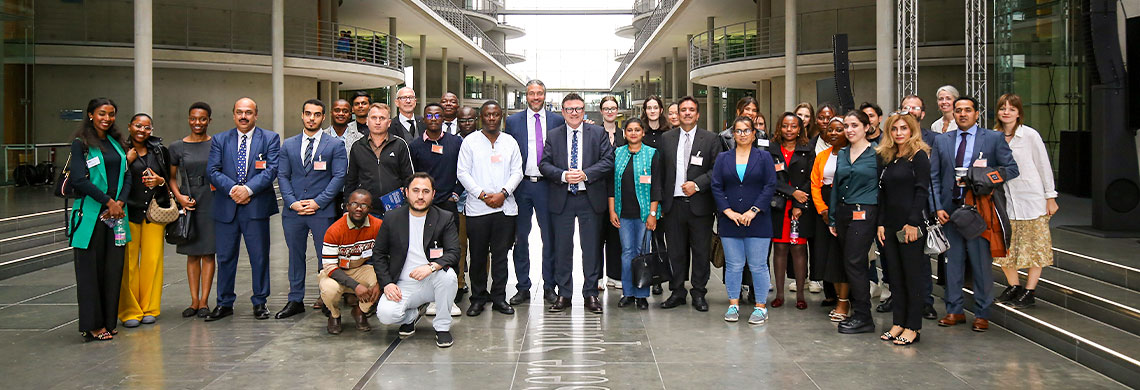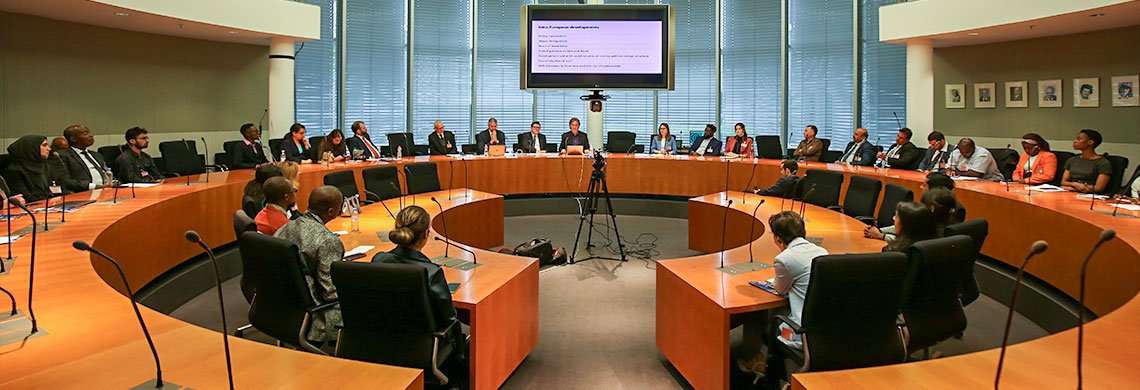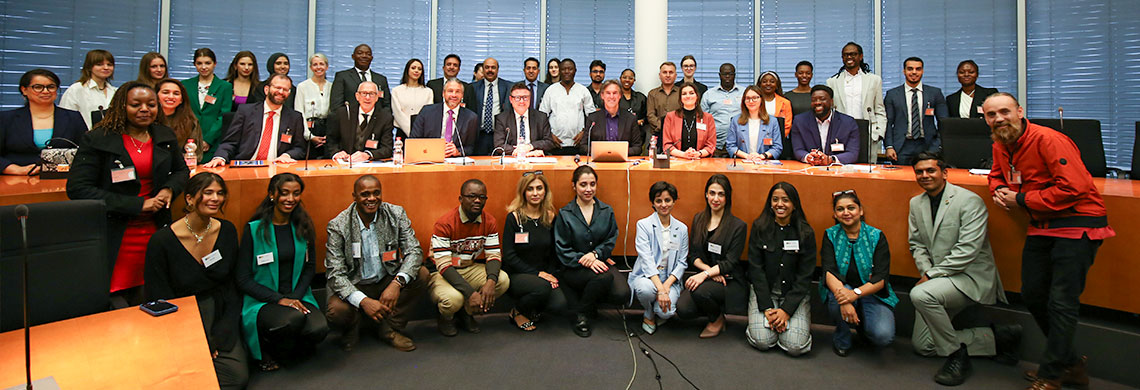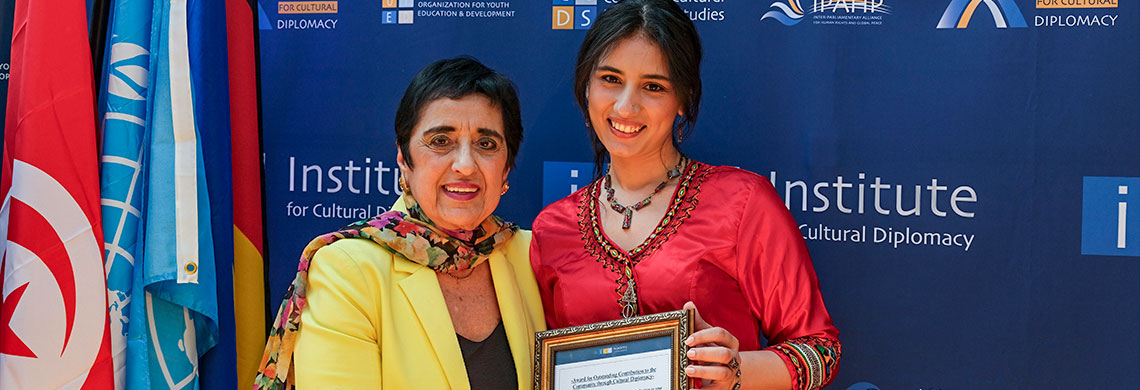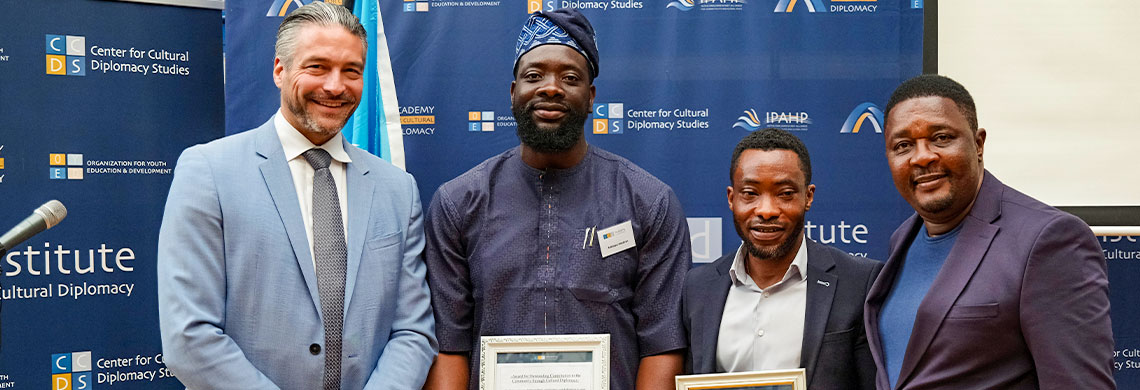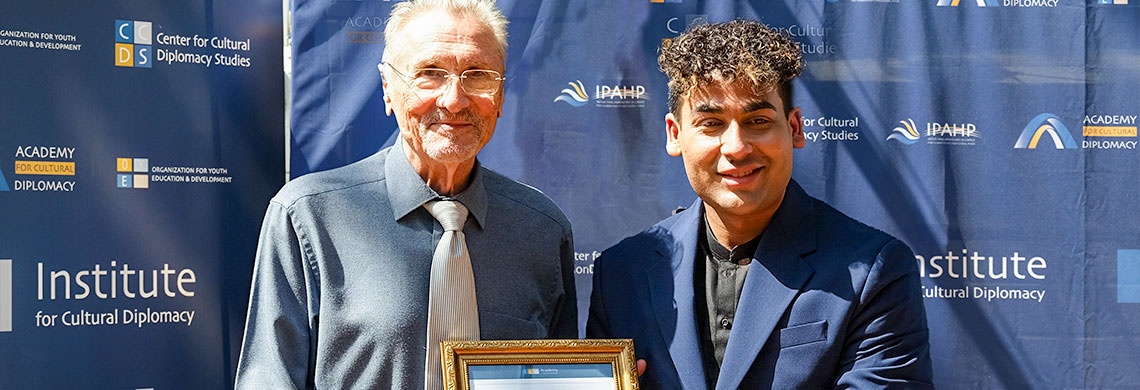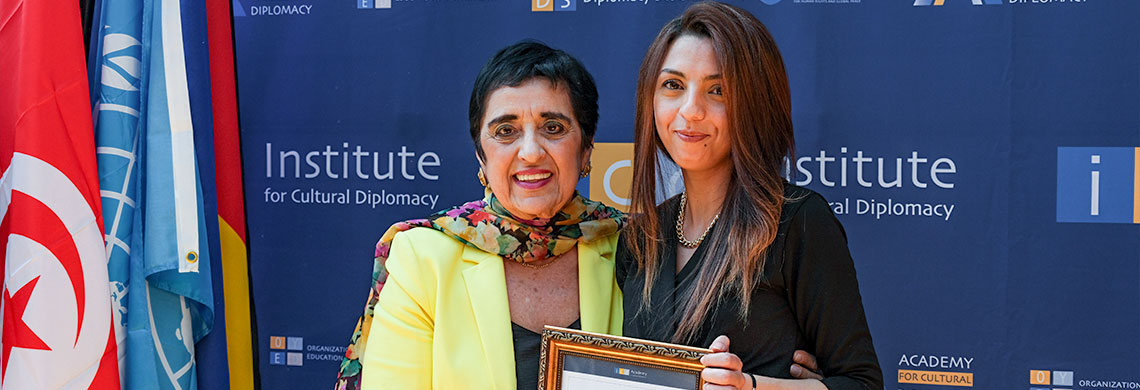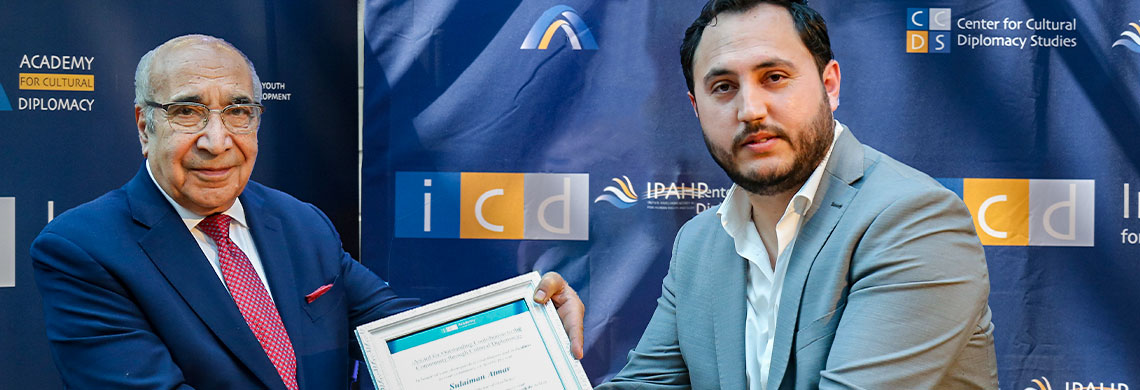Young Leaders´ Forums
The UK Meets Germany
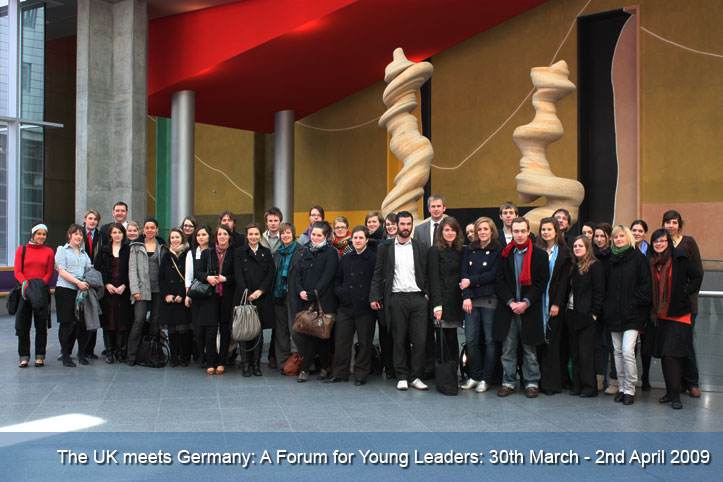
Report of Day 1: An Introduction to Cultural Diplomacy
Day one of the Second Weeklong Seminar for “The UK Meets Germany: A Forum for Young Leaders” began in Berlin’s historic Amerika Haus, former location of the cultural department of the American Embassy in Berlin and focus of activity and cultural exchange during the Cold War. The day began with the participants introducing themselves to each other and explaining why they were interested in taking part. The Seminar participants, 30 in total, included a diverse range of perspectives and a healthy balance of Brits (17) and Germans (13).
Institute for Cultural Diplomacy (ICD) founder and director Mark Donfried then welcomed the participants to the Seminar and invited discussion on the meaning of cultural diplomacy. Mr. Donfried explained that the ICD’s goal was to reach and empower civil society through the Seminar’s participants. Mr. Donfried also explained that the program participants had now joined a powerful network of civil society activists who are interested in supporting British-German relations.
After Mr. Donfried’s welcome, participants dined at a nearby café and then returned back to the Amerika Haus. Back in session, the participants were given an overview of key British-German cultural exchange institutions, some of which are partnered with the ICD. The participants were then divided into groups and given a list of questions relating to the popularity of language learning and trends that had been identified in cultural exchange between the UK and Germany. The questions provoked a range of different responses, and lead to new observations and discussions on related themes.
The group ended the day’s official events by learning about their group projects, which were to be worked on throughout the week. They then headed to a cosy bar in the heart of East Berlin for a British-style pub quiz, which carried on late into the evening.
Report of Day 2: The European Union and British-German Relations
Day two’s events opened with a presentation by the Director of the Alfred von Oppenheim Center for European Policy Studies at the German Council on Foreign Relations, Jan Techau. Mr. Techau gave a fascinating presentation on UK-German historical political relations; a comparative analysis of the geopolitical formation of the two countries; and an insight into UK and German perspectives on the European Union. Later Mr. Techau entertained questions from the audience relating to his work experience in the Ministry of Defence, and asking for his opinion on issues such as Turkey’s membership of the EU, EU policy towards Russia, and the future of British-German relations.
After a lunch break next to the Brandenburg Gate, participants regrouped at Berlin’s European House for a lecture given by Mr. Willem Noë, a representative of the Directorate General for Communication at the European Commission Representation in Berlin. Mr. Noë, a Dutch economist by training, gave a presentation on the historic, economic, and political fundamentals of the EU. Mr. Noë’s presentation proved to be a thorough overview of the development and current status of the EU, focusing in particular on the costs and benefits of membership and the different viewpoints held by the UK and Germany with regards to integration and extension of power. Like Mr. Techau, Mr. Noe received participant questions relating to the EU and Turkey, and how the UK and German perspectives were defined in the debate.
Back in the Amerika Haus the UKMG participants discussed the role of stereotypes and the media in the UK-Germany relationship. Detailed presentations by ICD staff members Lucy Thomas and Phillip Nicholls provoked active discussion amongst the group and gave the participants a valuable opportunity to learn from each other and voice their own opinions. The day ended with an excellent meal at Tunisian restaurant ‘En Passant’. Located in West Berlin’s fashionable Savignyplatz. En Passant gladly hosted the group with pasta, pizza, couscous, and wine.
Report of Day 3: The British Embassy, Sport, and British Politics
Day two’s events opened with a presentation by the Director of the Alfred von Oppenheim Center for European Policy Studies at the German Council on Foreign Relations, Jan Techau. Mr. Techau gave a fascinating presentation on UK-German historical political relations; a comparative analysis of the geopolitical formation of the two countries; and an insight into UK and German perspectives on the European Union. Later Mr. Techau entertained questions from the audience relating to his work experience in the Ministry of Defence, and asking for his opinion on issues such as Turkey’s membership of the EU, EU policy towards Russia, and the future of British-German relations.
After a lunch break next to the Brandenburg Gate, participants regrouped at Berlin’s European House for a lecture given by Mr. Willem Noë, a representative of the Directorate General for Communication at the European Commission Representation in Berlin. Mr. Noë, a Dutch economist by training, gave a presentation on the historic, economic, and political fundamentals of the EU. Mr. Noë’s presentation proved to be a thorough overview of the development and current status of the EU, focusing in particular on the costs and benefits of membership and the different viewpoints held by the UK and Germany with regards to integration and extension of power. Like Mr. Techau, Mr. Noe received participant questions relating to the EU and Turkey, and how the UK and German perspectives were defined in the debate.
Back in the Amerika Haus the UKMG participants discussed the role of stereotypes and the media in the UK-Germany relationship. Detailed presentations by ICD staff members Lucy Thomas and Phillip Nicholls provoked active discussion amongst the group and gave the participants a valuable opportunity to learn from each other and voice their own opinions. The day ended with an excellent meal at Tunisian restaurant ‘En Passant’. Located in West Berlin’s fashionable Savignyplatz. En Passant gladly hosted the group with pasta, pizza, couscous, and wine.
Report of Day 4: The German Foreign Office and Dr. von Moltke
Thursday saw the UKMG group head to the German Foreign Ministry to be greeted by Hans-Ulrich Südbeck, Deputy Head of Division for the Northern Europe EU State at the Foreign Office. Mr. Südbeck began by giving the group an informative tour of the two separate buildings that constitute the Foreign Office. The recently constructed ‘front’ building has a predominantly glass façade and symbolises transparency in government (the public are welcome to enter the foyer of the building and visit the café there at any time). The group was then taken ‘behind the scenes’ to the older building, which was originally built as a printing press and whose internal architecture reflected German history over the past 80 years. In addition to the numerous conference rooms, the group visited the room in which the German reunification treaty had been signed and was fortunate to be able to ride on the paternosters that are still running today.
Following their fascinating tour the group was escorted to a grand conference room in the heart of the old building where Mr. Südbeck began to speak about the Foreign Office and his work there. A friendly and open personality, he has an MA in History and African Studies with English and currently works on protocol and administration issues regarding Northern EU states such as Ireland, The UK, Latvia and the Scandinavian countries, with a specific emphasis on Ireland and Latvia. Mr Südbeck talked about his life and career, and gave an overview of the inner mechanisms of the foreign office. He answered wide-ranging questions about himself, German foreign policy, German cultural diplomacy, Ireland and the Lisbon treaty, and the current global financial crisis. It was an absolute pleasure to meet Herr Zulbeck, who proved to be a most gracious host, and a true Gentleman.
The UKMG group then headed back to the Amerika Haus for a unique meeting with the former German Ambassador to the UK, and former German permanent representative to NATO, Dr Gebhardt von Moltke. An articulate and disarming individual, Dr. von Moltke gave a thorough overview of his career, which involved two separate spells in London and a total of 35 years in the foreign office. Particularly revealing during his presentation were his examples of the early bi-lateral initiatives he worked on during his time in the UK, and his view that the cultural differences between the UK and Germany should be embraced as a platform for constructive relations.
Dr. von Moltke highlighted what he considered to be the key differences between the UK and Germany. British pragmatism, he highlighted, has traditionally been the bedrock of British achievement in so far as it has allowed for a flexible and quick reaction in facing challenges. The German mentality, on the other hand, tends to refine and analyse situations and problems, taking longer to reach a solution. He considers the UK to be more self-confident, arguing that the UK sees solutions where the Germans see problems.
Many questions and issues were raised in the following group discussion, including whether or not Germans should take a proactive approach to addressing misleading stereotypes that exist amongst British people
It was truly a pleasure to be part of an audience with Dr von Moltke, who displayed the serenity of seniority, and was generous in sharing his experience and his perspectives with the group.
Report of Day 5: Project Presentations and the Future
The final day of the UKMG Weeklong Seminar provided the participants with the opportunity to present the cultural exchange initiatives they had been working on throught the week to the remainder of the group.
During the presentations it became clear that the groups had thought in depth about how they could address the imbalance in cultural awareness between the UK and Germany, particularly amongst the young generation. Their ideas combined a number of techniques designed to ensure their initiatives would be realistic, sustainable, innovative, and would help to elciti greater interest within each country for the other. and yet simple. From a newsletter exchange between old-people’s homes to a battle-of-the-bands style music concert, the young leaders presented their ideas and faced a diverse range of questions from their colleagues, who challenged them on key points.
The presentations represented the culmination of the week, and served as a challenge to the participants to develop their own initiatives in the future.
Following the culmination of these presentations ICD Founder and Director Mark Donfried and Program Director Peter Rees presented the participatns with certificates and CDs containing important information about the week and the Forum as a whole.

